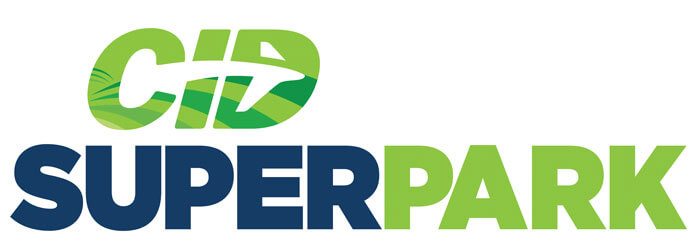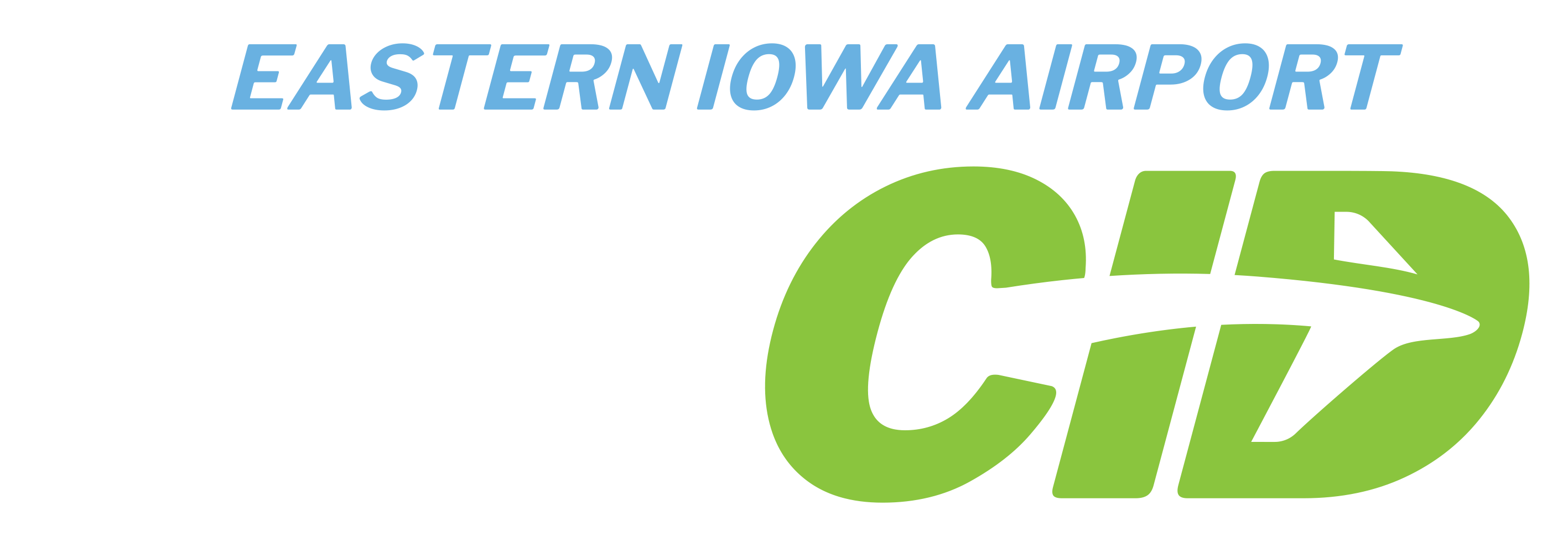
The Eastern Iowa Airport has the state’s first SuperPark, which is certified under the Iowa Economic Development Authority (IEDA) Iowa Certified Site Program. The IEDA’s program was created to fill the demand for project-ready industrial sites, making the decision to locate in Iowa an easy one.
Iowa’s certified site program parallels a typical site location process. Once credentialed, an Iowa Certified Site has relevant site-related data and documentation accumulated and is designated as “development ready.”
In order to be considered a SuperPark there are certain key criteria that must be met, including:
- A minimum of 500 contiguous acres (the airport’s Super Park has 582 acres)
- The ability to provide 1 million gallons of water per day
- The ability to provide 32,500 million cubic feet of natural gas per month within nine months
- Immediate access to rail and the park must be within five miles of an interstate highway
For more details about the SuperPark and other available parcels at CID, go to CID SuperPark.
Master Plan
The Eastern Iowa Airport is the only airport in the state that has sustainable master plan for its strategic planning. There are also several development opportunities available in the CID SuperPark.
Foreign-Trade Zone 175
To add to our unique features, the Eastern Iowa Airport has been designated one of a limited number of Foreign-Trade Zones in the Midwest. With our FTZ No. 175 status, Cedar Rapids is rapidly becoming an important hub for international trade, and is the United States’ largest national exporter on a per capita basis.
What is a Foreign-Trade Zone?
A Foreign-Trade Zone (FTZ) is a site within the United Sates where foreign and domestic merchandise is considered to be in the stream of international commerce. Foreign and domestic merchandise may enter this zone without a formal customs entry, the payment of customs duties, or federal and state use/excise taxes and personal property taxes. Firms may also perform manufacturing or processing operations, packing or inspection checks, and a variety of other activities using imported goods before duties are paid. Scrap or rejected goods not entering the commerce of the United States are never taxed. By using a number of cost saving strategies, firms may use Foreign-Trade Zones to decrease operational costs associated with customs duties.
What are the advantages of using a Foreign-Trade Zone?
- Limit the requirement to pay customs duty on arrival of merchandise
- Eliminate duty on re-exported merchandise
- Eliminate duty on damaged or unmarketable items
- Defer duty payments until goods are ready for sale
- Limit non-value added costs while manipulation or processing merchandise in the FTZ
- Store both bonded and non-bonded merchandise within the FTZ
- Reduced insurance rate on merchandise stored in the FTZ
For more information, contact Caleb Mason, at c.mason@flycid.com.

